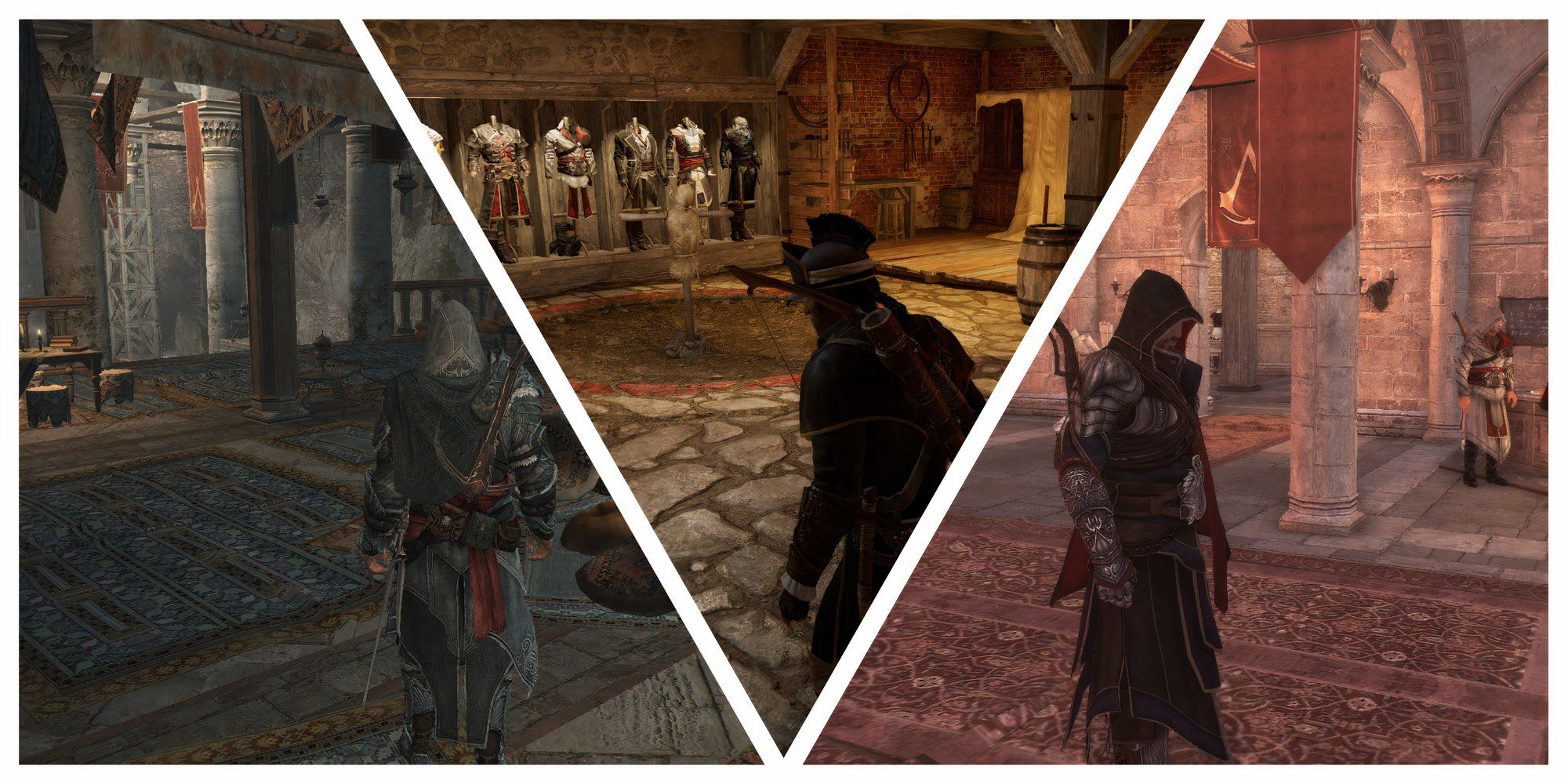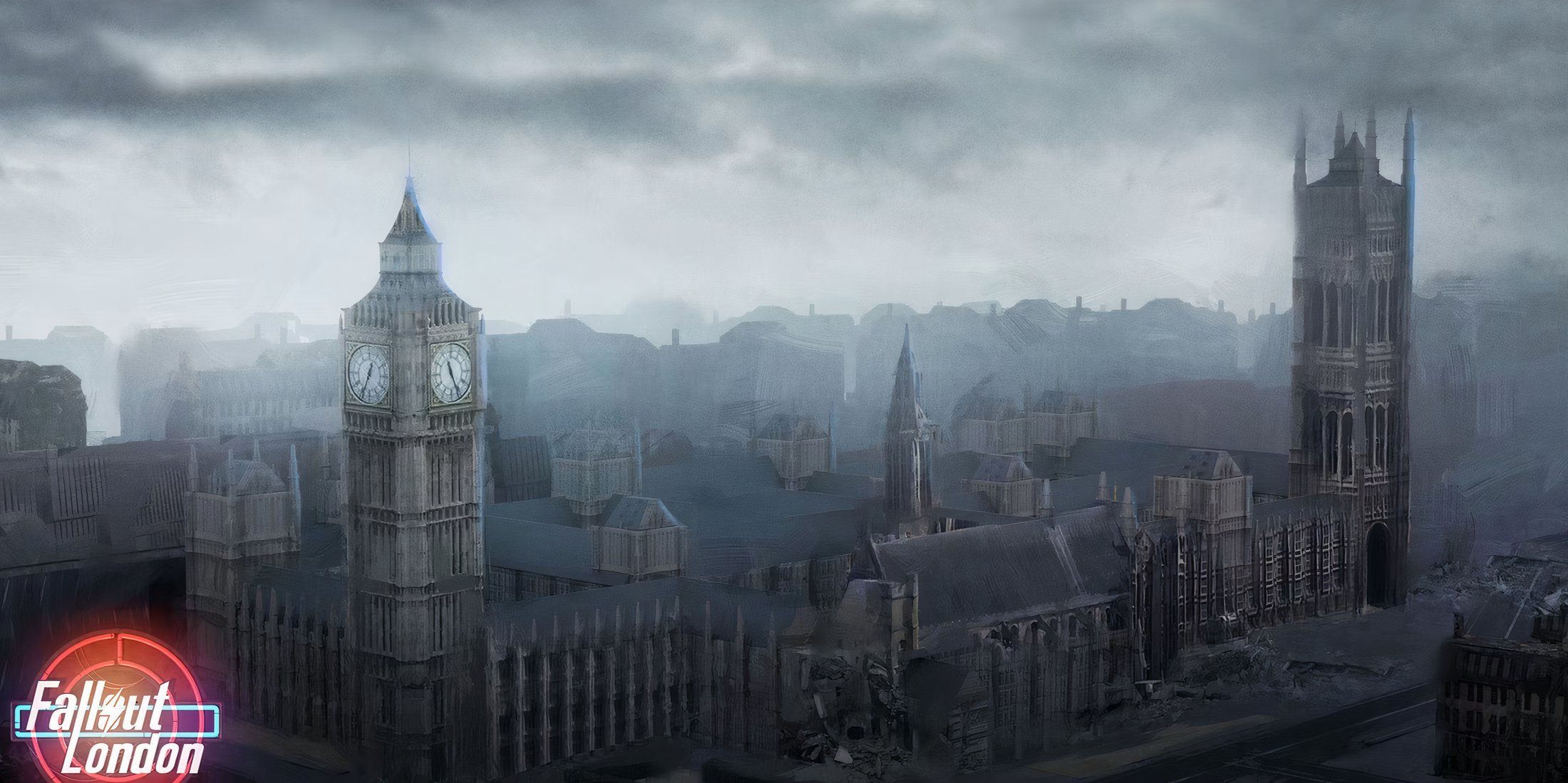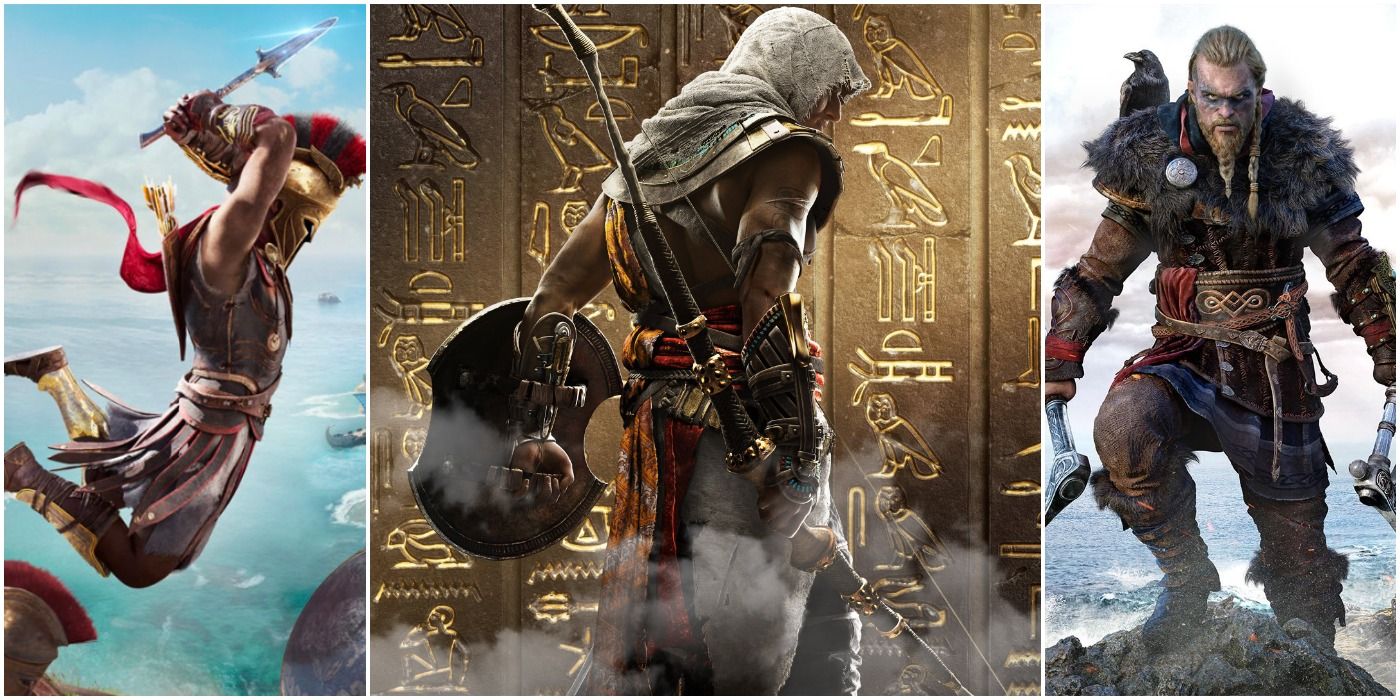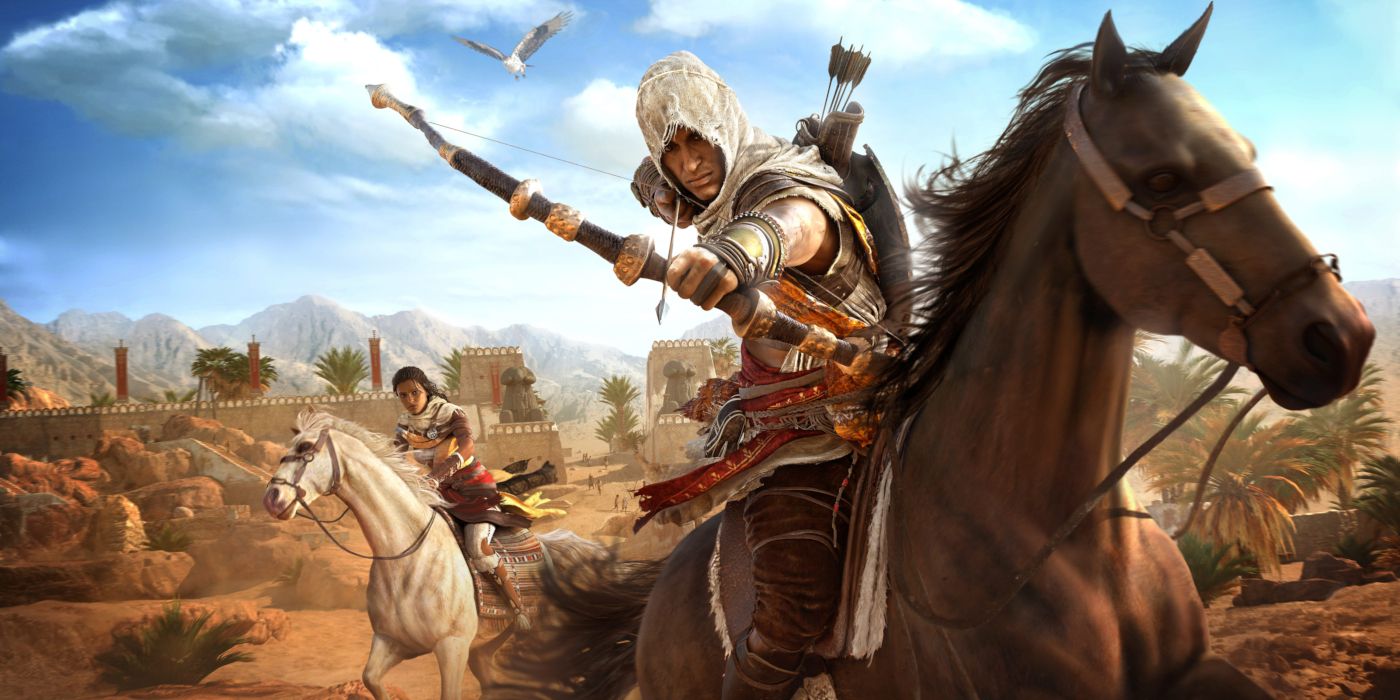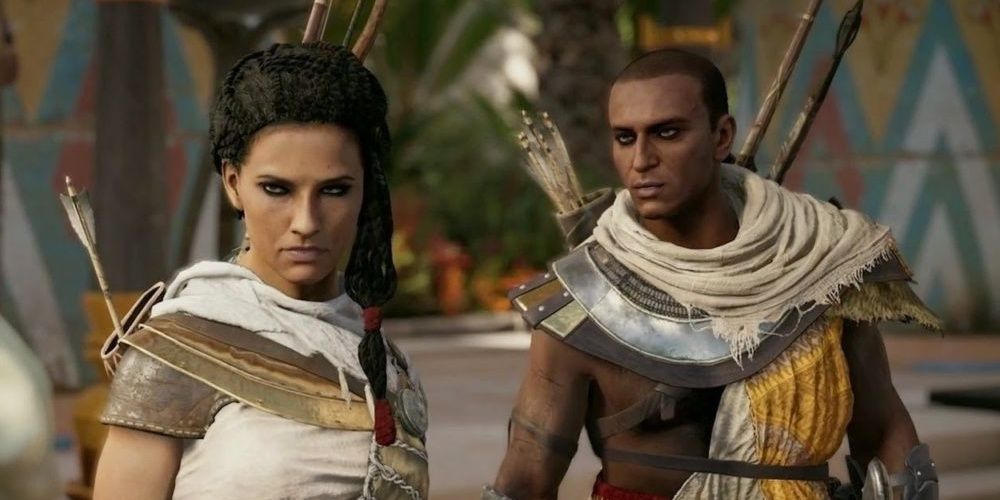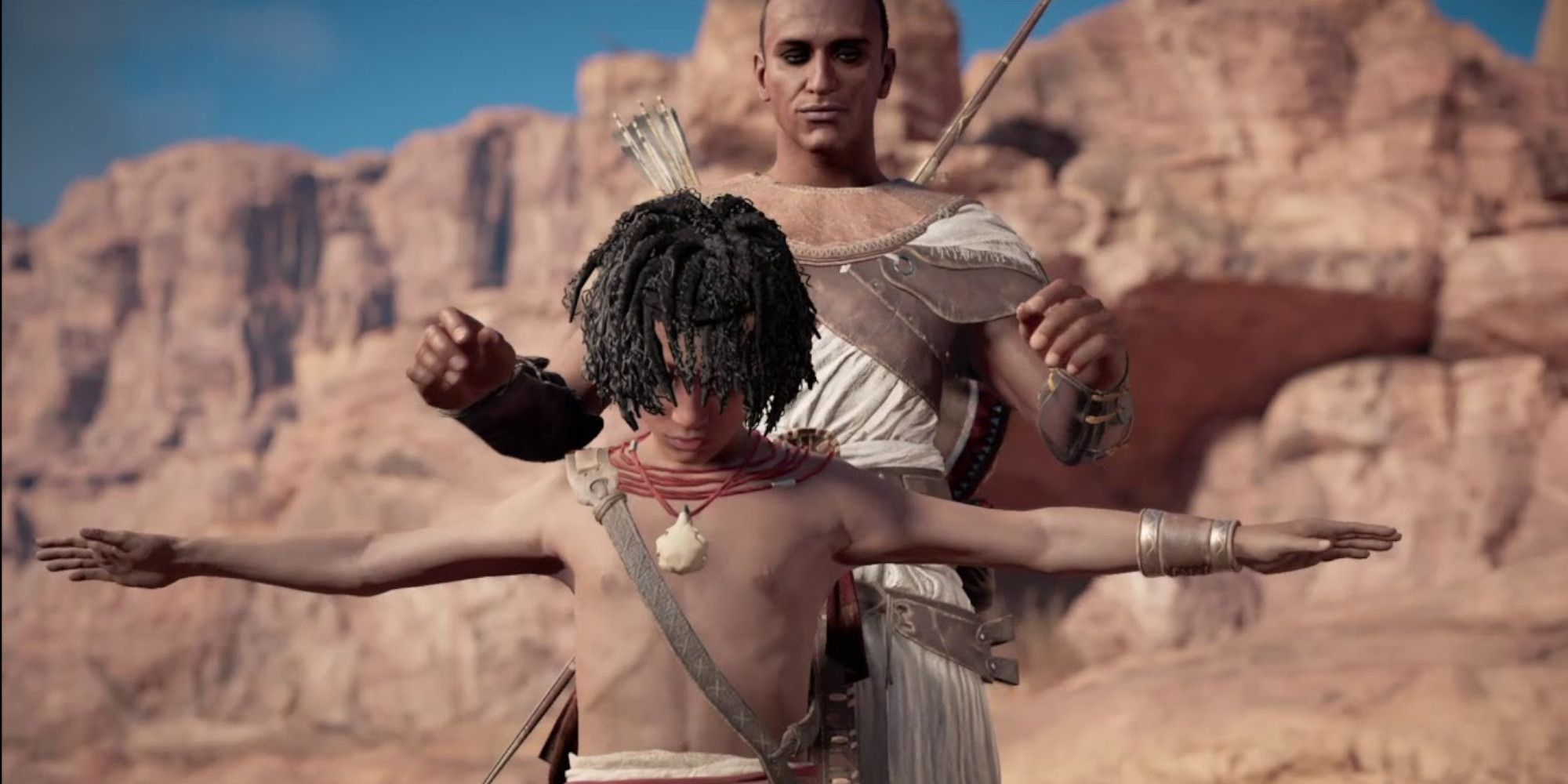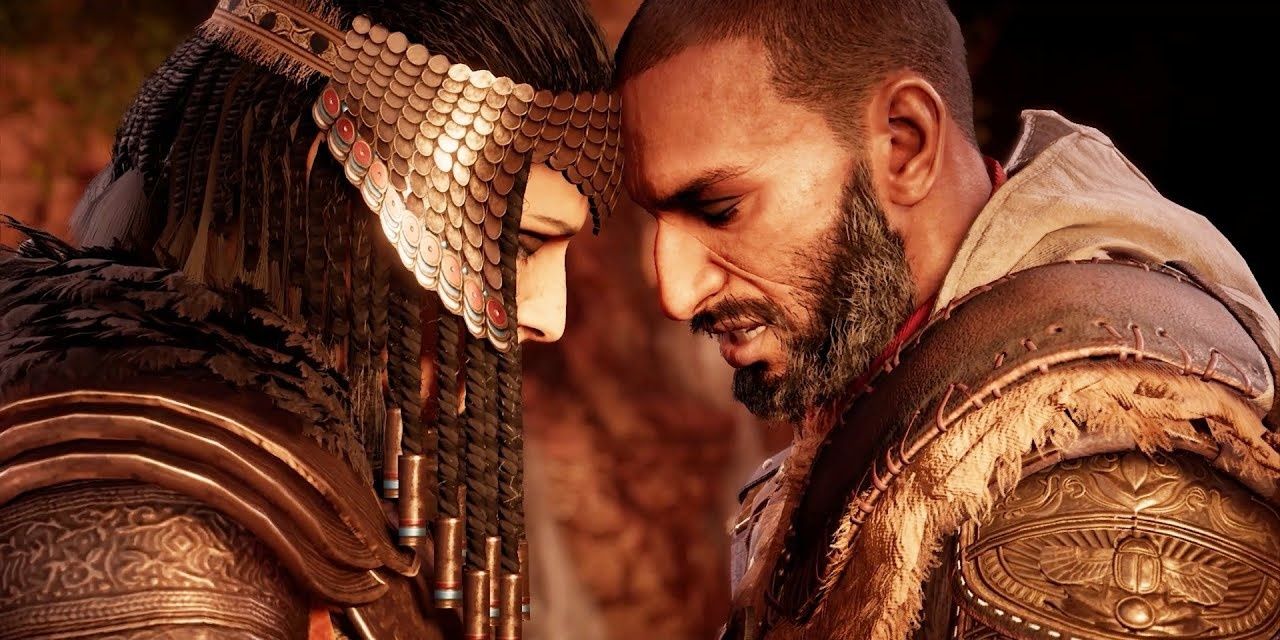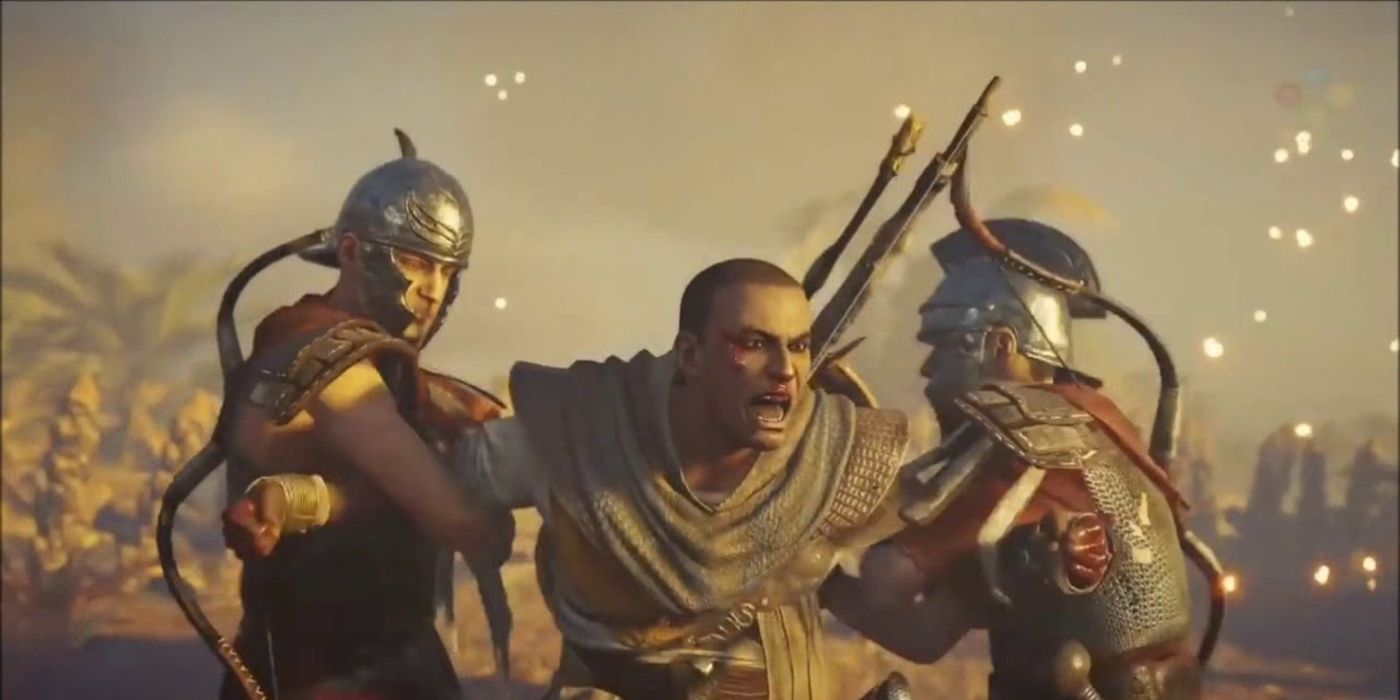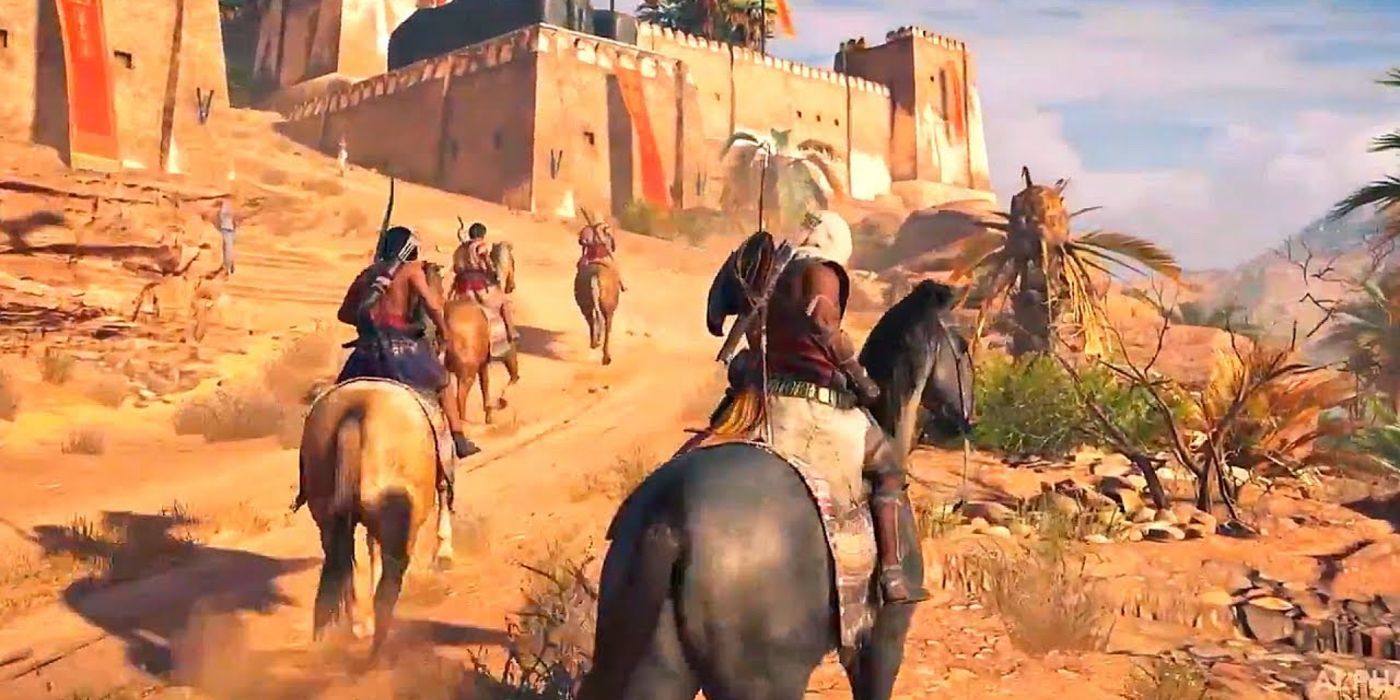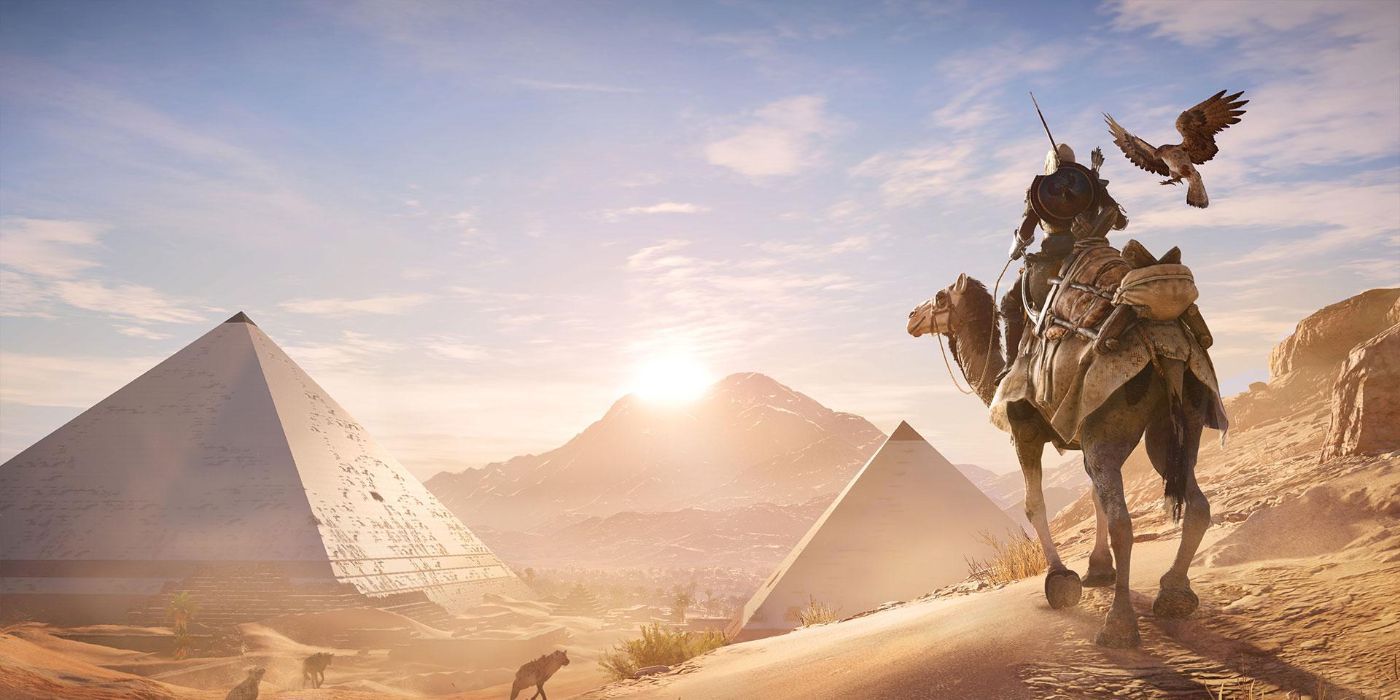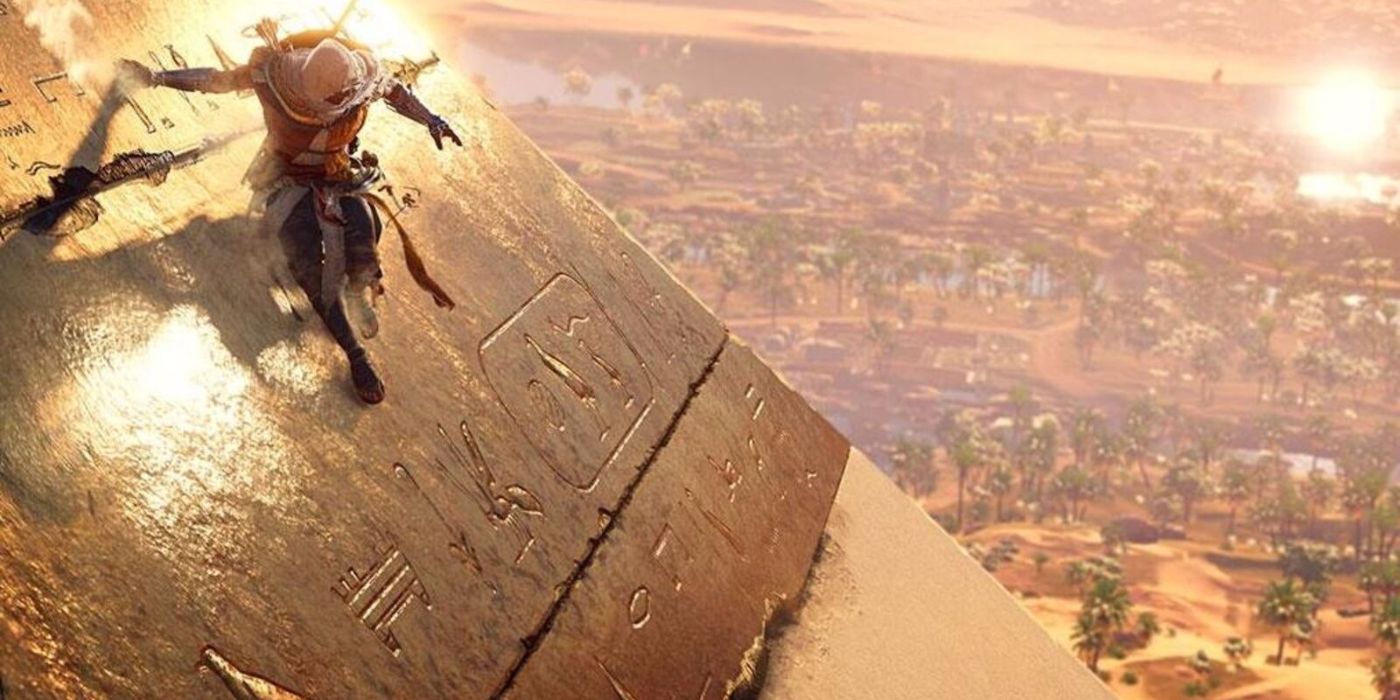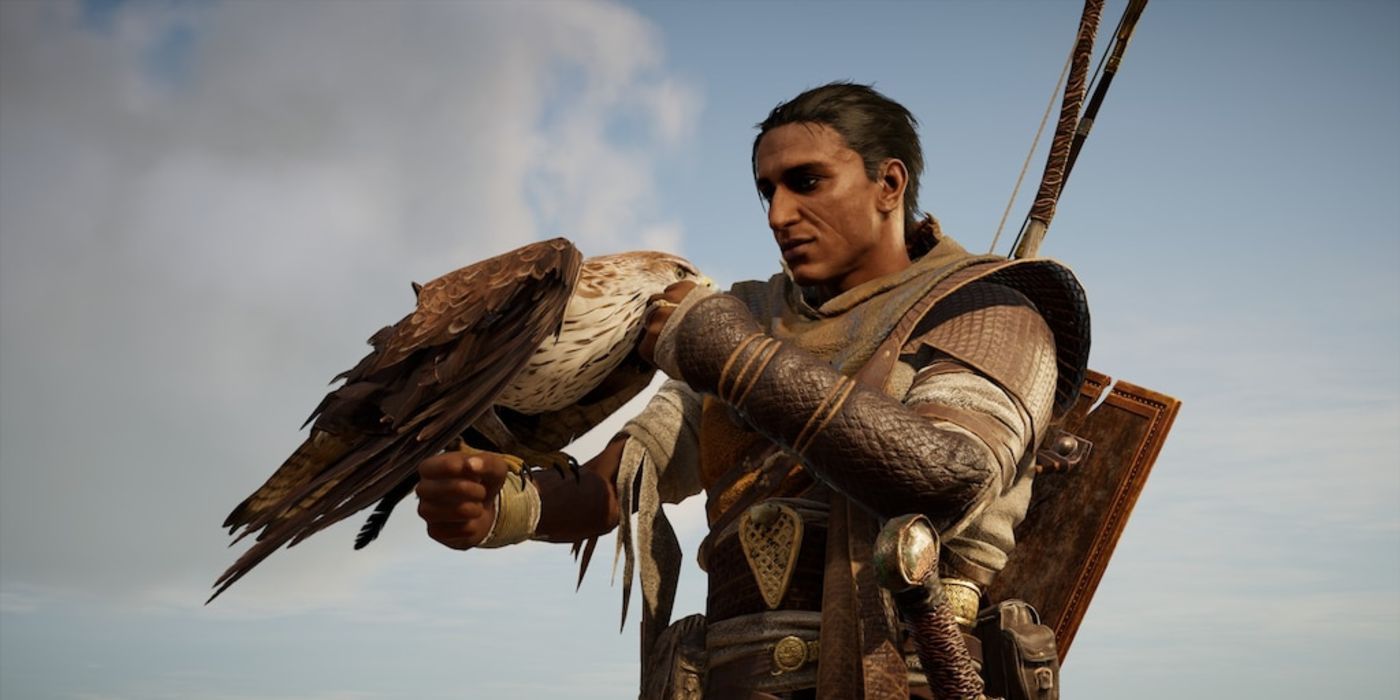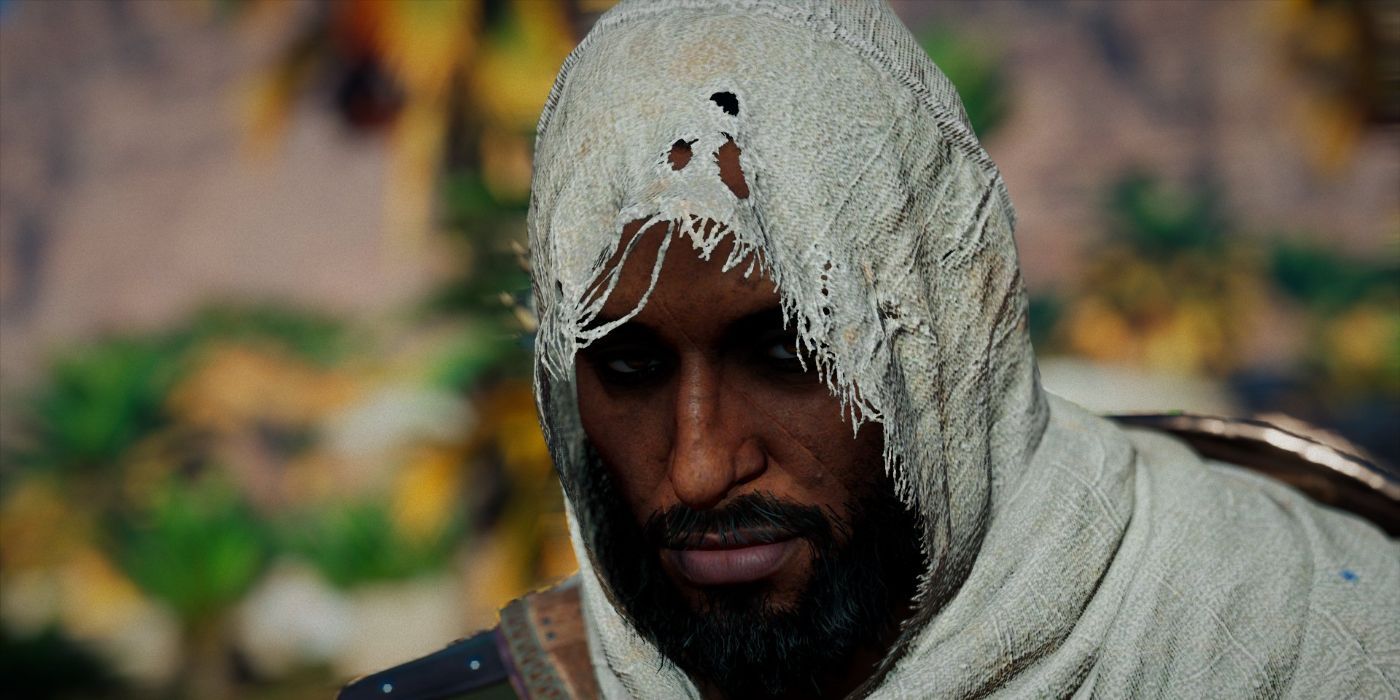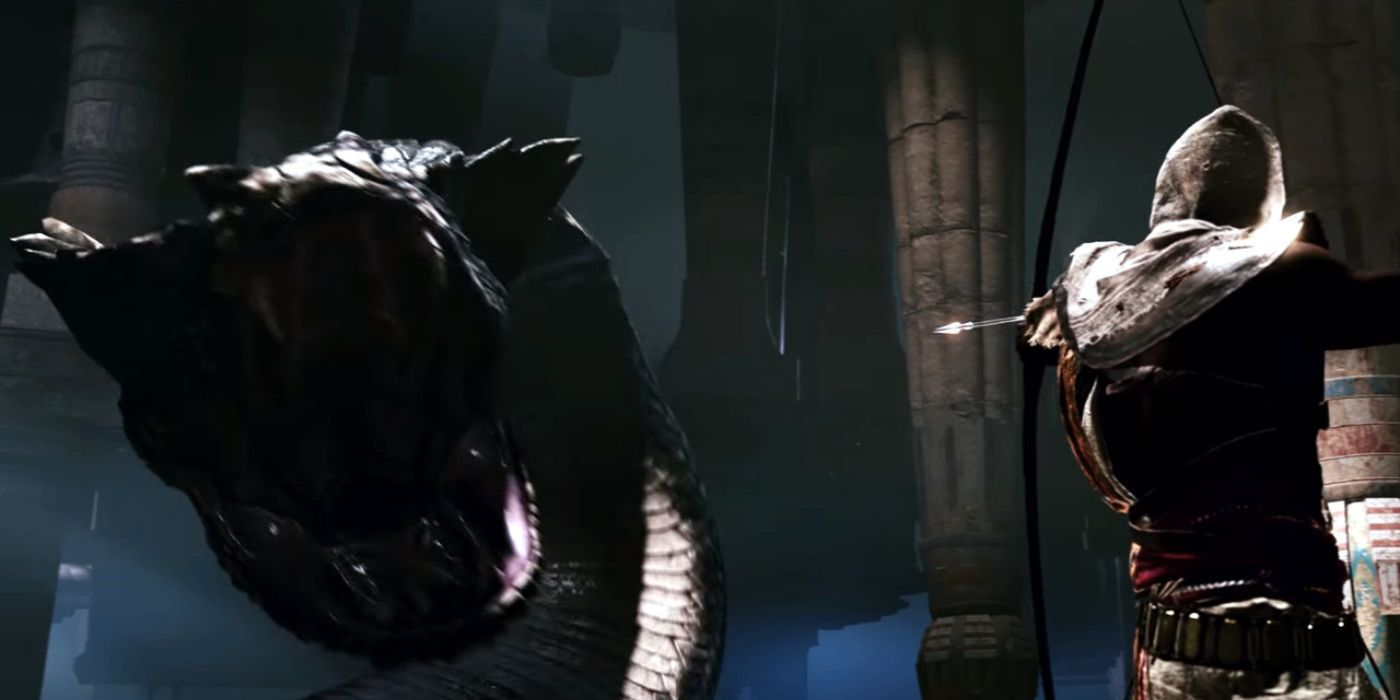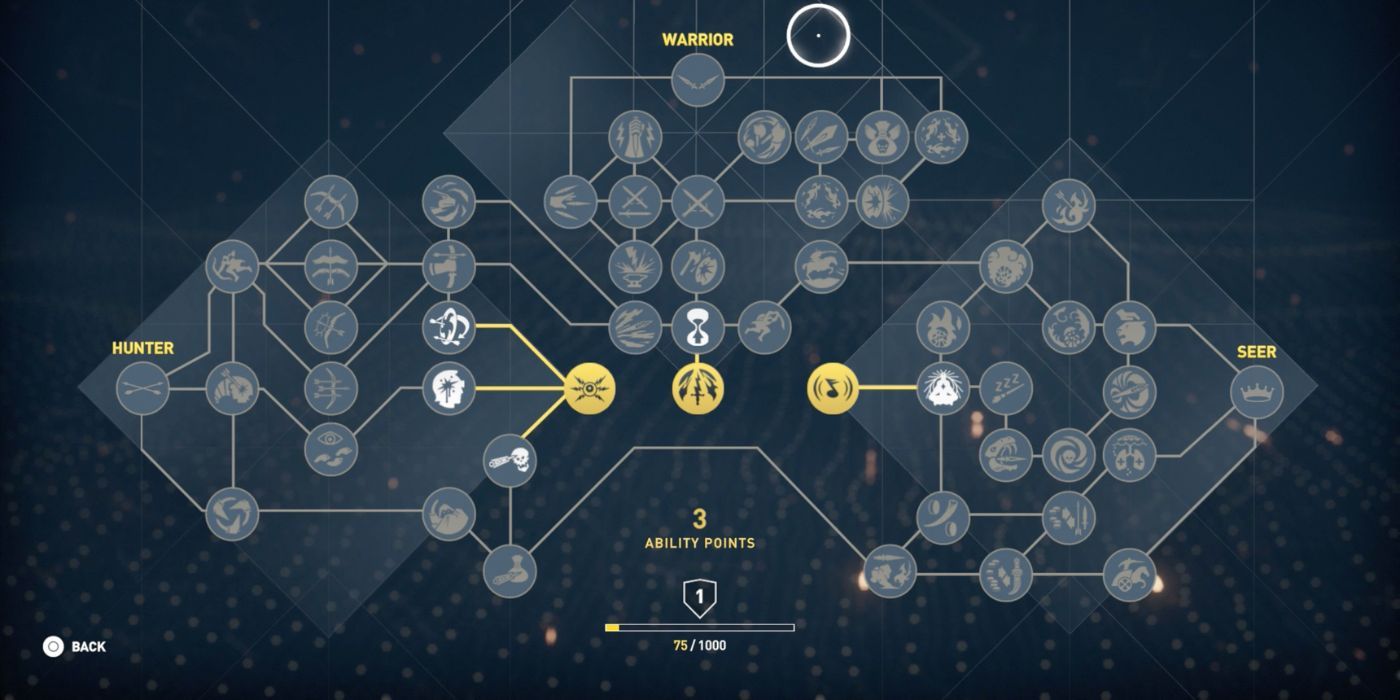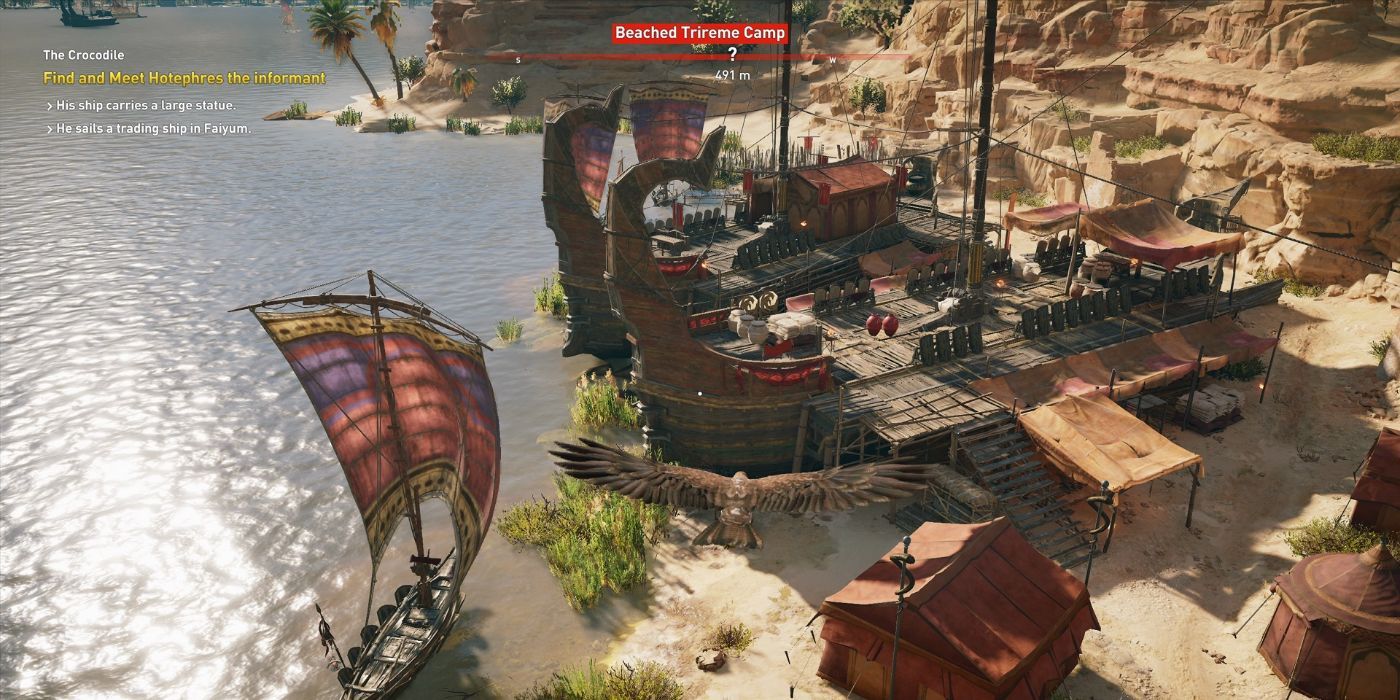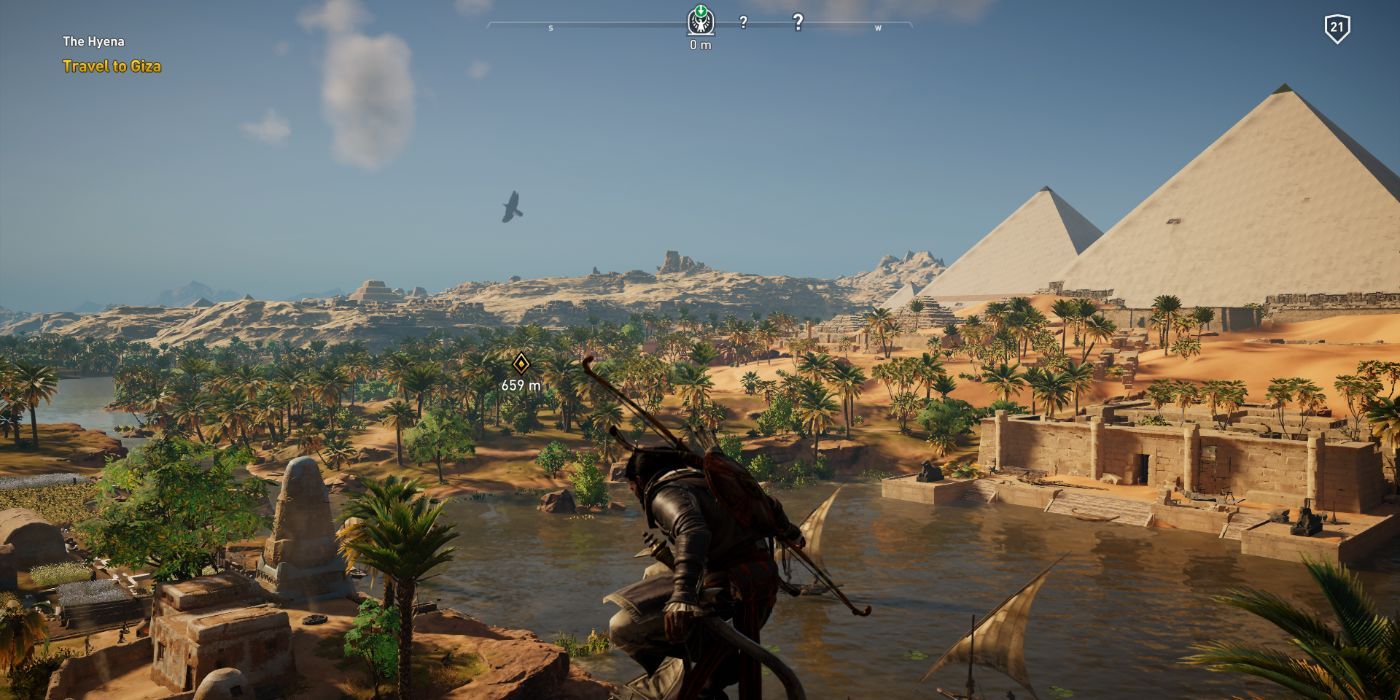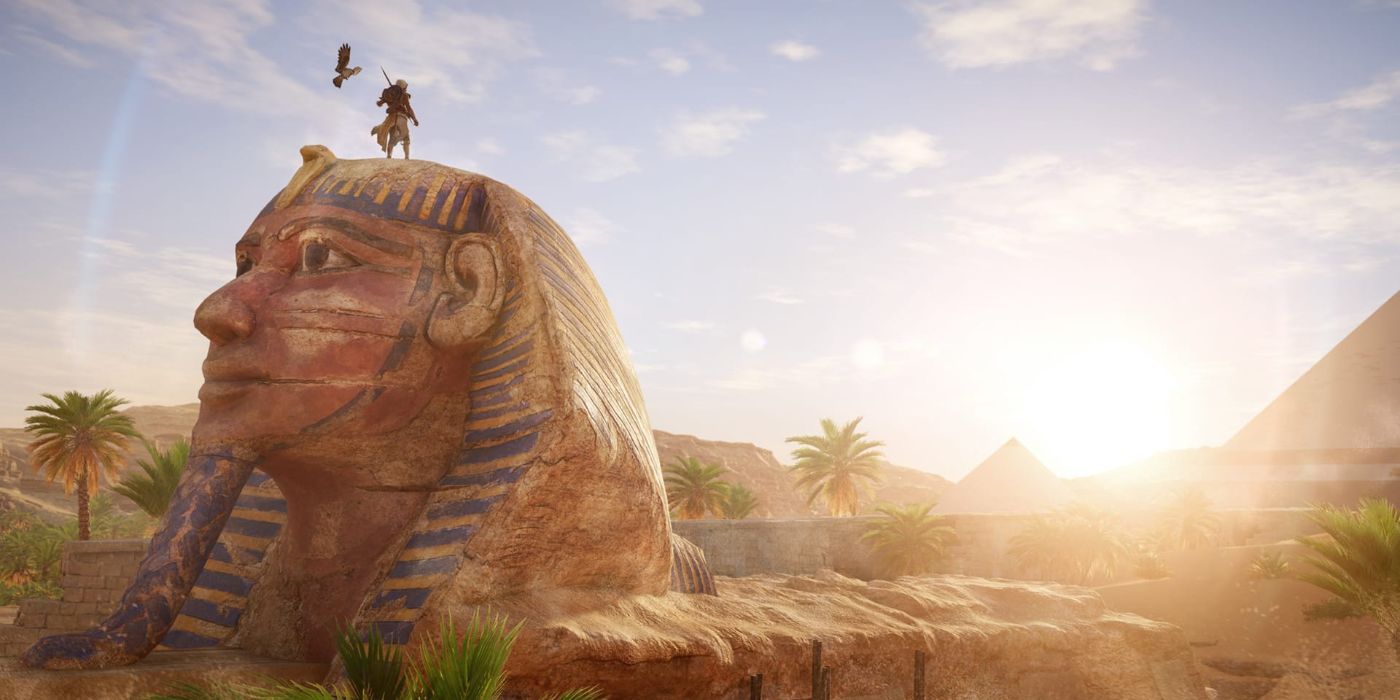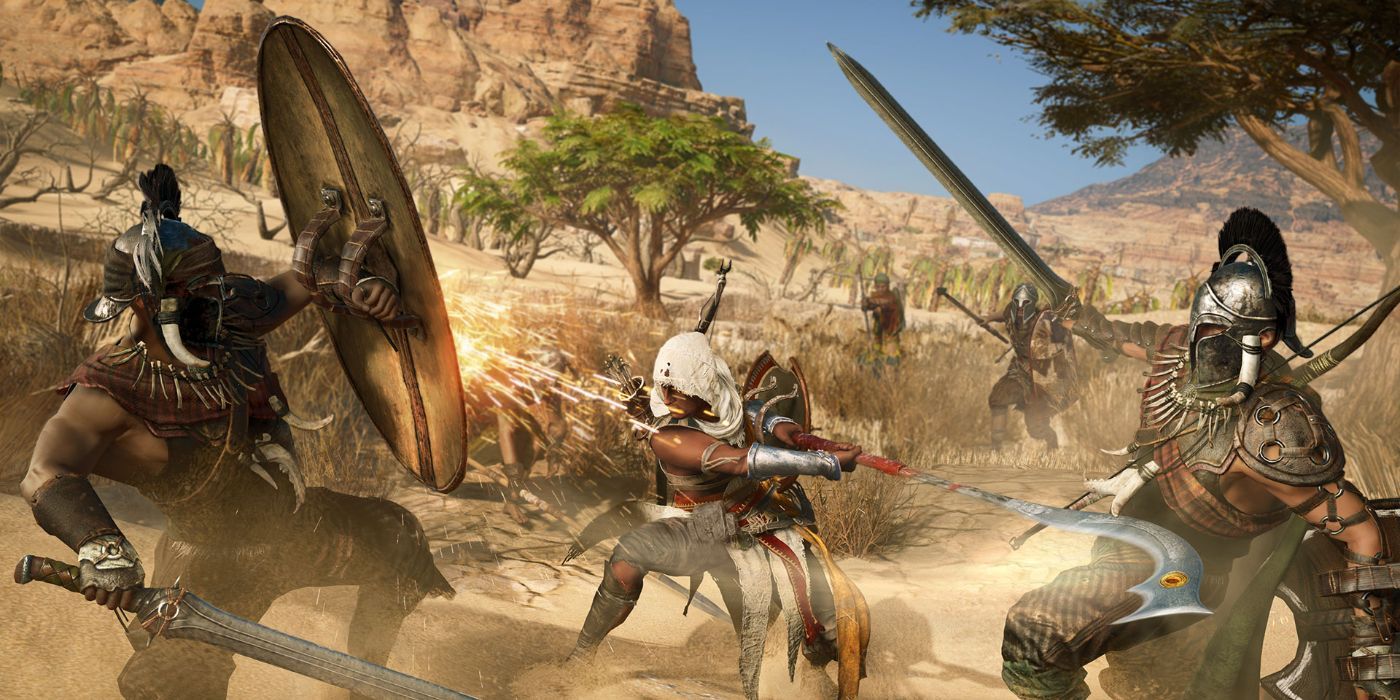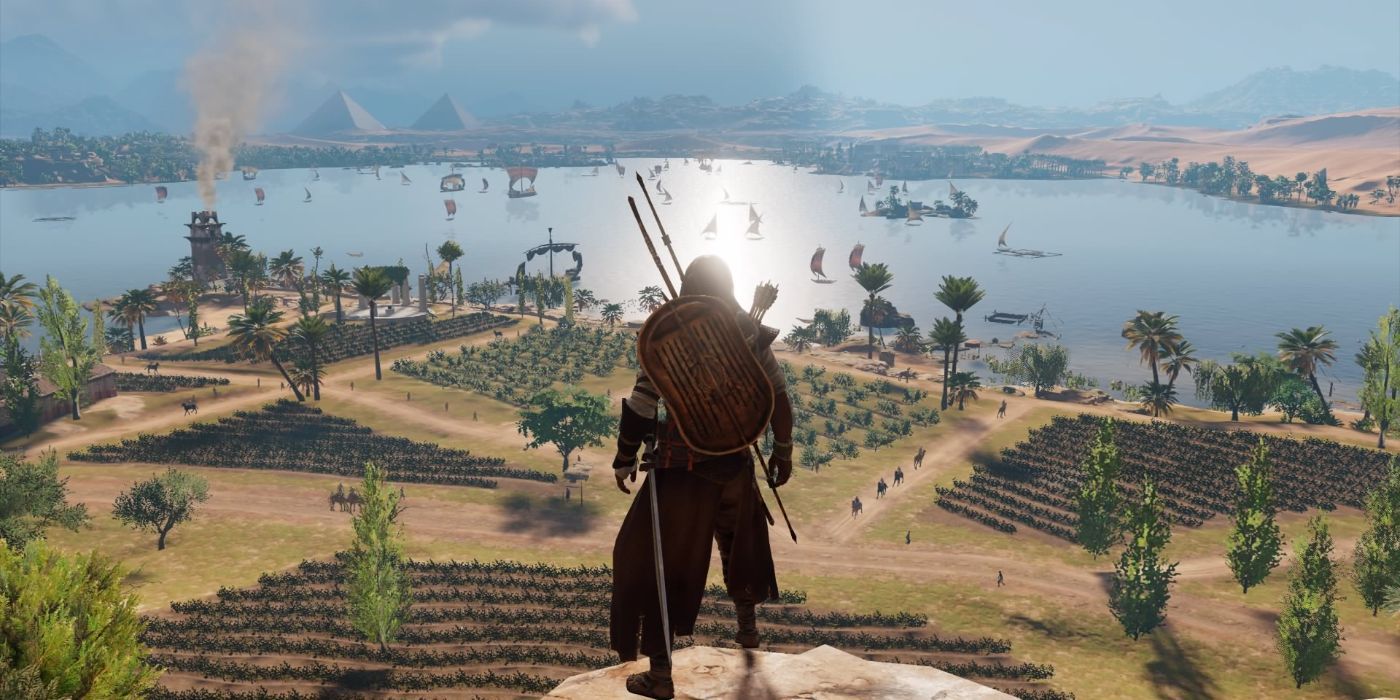The Assassin's Creed franchise has gone through some serious changes back in 2017, with the release of Assassin's Creed: Origins. Fans of the series were in agreement about the fact that these alterations were much-needed After all, the tried and tested AC formula was getting a little stale after eight main entries with eerily similar gameplay mechanics and mission sequences.
Ubisoft's pivot turned out to be a huge success. Fully-fleshed RPG elements revamped combat mechanics and beautifully realized open worlds became landmark characteristics of the series. After Origins, Assassin's Creed: Odyssey and Valhalla continued the trend. In many ways, these titles improved upon the formula. On the other hand, though, Origins remains the best "new" Assassin's Creed game in a few very important areas.
Updated on July 20, 2023 by Jake Fillery: After the Assassin’s Creed franchise closed the curtain on Ezio Auditore and Desmond’s story, the series seemed directionless, and many fans got off the hype train in awaiting something new and special. Luckily for them, Assassin’s Creed: Origins was something special, and it evolved the series in a way that could paint the future for the direction of the franchise, for better or worse. There’s much to love about Assassin’s Creed: Origins and fans have expressed their keen interest in the characters, world, and story. It has been six years since Assassin’s Creed: Origins and the franchise has stumbled with Assassin’s Creed: Odyssey and Assassin’s Creed: Valhalla, begging the question of what made Assassin’s Creed: Origins better than its sequels, and can the series come back to form with Assassin’s Creed: Mirage?
17 Grounded Tale
There was a simplicity to Assassin’s Creed: Origins that deserved to be admired. Players were entering a bold new world, with brand new characters that they had no attachment to just yet. It was a far cry from the characters and DNA of what players knew, but luckily, a grounded story was told that helped to anchor players to these new characters in emotional ways. Whereas with the sequels, the games went too big, and far too mythical, lacking the personal story progression that provided character growth.
Assassin’s Creed: Origins allowed the franchise to go back before what they knew, and this era from 48 BC allowed more creative freedom when it came to storytelling. Despite the complex elements involving the decade-long franchise lore, there was beauty in simplicity surrounding the story of Bayek, a vengeful father seeking out the murderer of his sons, whilst founding the Assassin’s Brotherhood that fans know and love today.
16 Strong Franchise Ties
Assassin’s Creed: Origins was unapologetic with its connections to the series. Everything was clear from the beginning. The hood, the eagle, the hidden blade. Everything was there, showing fans who might have left the series behind that Assassin’s Creed was still there, it has just evolved. These strong franchise ties allowed comfort in familiarity, and players wouldn’t be confused as to if they are an Assassin or just some random person with a hidden blade.
The very fact that Assassin’s Creed: Origins shows the foundation of the Assassin’s Brotherhood, and the reasons for their weaponry, makes for a pleasurable experience. However, the sequels seem to lack much-needed ties to the Assassins, and it’s hard to look at the sequels to Assassin’s Creed: Origins and see them as Assassin’s Creed games, and instead, just as historical open-world games with a branded title for easy recognition on the market.
15 Lack Of Nonsense
Although the Assassin’s Creed series has featured some more magical and mythical elements of the past, such as characters like Juno, and even the pieces of ancient technology like the Apple of Eden, there’s something weirdly jarring when players see Norse mythology characters like Loki, and characters being able to freely roam Valhalla, or fight the likes of Hades.
The sequels for Assassin’s Creed: Origins become more bizarre, and the emphasis on fun, makes the game not-so-fun. It makes players wish for a simpler time when the story was going somewhere, and not so disconnected from its lore and mythology that it just makes for a confusing experience that prefers recognizable character names and jokes, over its character motivation. Assassin’s Creed: Origins did a great job of allowing Egyptian mythology to leak into the world without being so overbearing.
14 A Love Story
Within Assassin’s Creed: Origins, there is a beautiful yet tragic love story between the two central characters, Bayak and Aya. These two characters are entwined throughout the story, and their chemistry is electric, which is why seeing them in pain, or saying goodbye, is an ending that nobody wants, but it is what the story needs.
The same cannot be said for the sequels to Assassin’s Creed: Origins, in which Valhalla and Odyssey see romance as options and side quests, a reward for playing the game. The romance options in these Assassin’s Creed: Origins sequels lack importance in the story, which is a shame, considering that love has always been a central theme in the Assassin’s Creed games. The lack of relationships that impact the story, and are reserved as nothing more than optional missions, leaves much to be desired.
13 The Main Story
The overarching narrative of all Assassin's Creed games is nothing new. The everlasting battle between the Assassin Brotherhood and the Templar Order across the ages has become so convoluted and complex that many players admit they don't know what's going on anymore and newcomers feel intimidated by it.
Enter Origins and the story of the establishment of the Hidden Ones, the precursor organization to the Assassin Brotherhood. The plot revolving around Bayek and Aya's revenge story turning more and more political as the main questline progressed was simple, which is exactly what made it so good. The plots of the later entries weren't nearly as polished and captivating, with Odyssey's multitude of plotholes, and the uninspired conquest story that Valhalla focuses on.
12 It Isn't As Bloated
The general trend in the gaming industry is to upscale most aspects of new games. Bigger maps, more things to do, more side quests, more collectibles. While it may seem like it's a good idea, open-world games have become so large that completing some of them feels like work. This is exactly the case with Odyssey and Valhalla.
AC: Origins pioneered the formula that is also implemented in the later titles, but its scale was much more bearable. The smaller number of question marks and things to do on the map allows for more organic exploration and completion of all the objectives.
11 Map Size
To piggyback on the earlier point, a lot of the "bloatedness" that the newest Assassin's Creed games suffer from is related to the size of their open worlds. The sheer amount of landmass present in Odyssey makes traversing the game without fast travel a nuisance. Players who don't want to break their immersion and choose to brave Ancient Greece on foot, horseback, and by ship only, succumb to many in-game hours spent solely on commuting from point A to point B.
In Origins, the map was much more scalable. Granted, some of the desert environments were dull and repetitive, but at least traveling on horseback from one end of the world to the other felt doable.
10 Side Content
Much of the side content in Assassin's Creed: Origins does not differ much from what players may encounter in Odyssey or Valhalla, but there are certain exceptions. Sequences such as exploring the Ancient Tombs in search of mystical tablets that provide insights into the First Civilization, or the tear-jerking Stone Circle quests where players get to relive Bayek's memories with his late son truly stand out as some of the most creative and engaging moments in the series.
Odyssey has done away with many of these concepts, opting to include more bosses, collectibles, and "collectathon"-type side quests instead. Tomb exploration and puzzle-based retrospections made a comeback in Valhalla, but they never quite recaptured the magic these moments had in Origins, primarily due to the lack of a worthy narrative-based reason for including them in the first place.
9 The Length Of The Game
The "length" of an Assassin's Creed game in the post-2017 context should also take into account at least some of the side quests and other content. After all, players need to get through them to be of a high enough level to handle the main quests.
All in all, getting through the main plot of Origins takes around 30 hours for most players. It is a near-optimal length, leaving players with the time to get to side content they may have missed out on. Odyssey's main story clocks in at 45 hours and Valhalla's whopping 60-70 hours just to get to the end credits. While some gamers may consider it better value for their money, it is important to note that such main quest lengths are achieved by adding a lot of filler content and missions that are intended to artificially prolong the game.
8 The Main Character
Assassin's Creed has had some great protagonists featured in these games across the years. Ezio Auditore and the Fry Twins are just two of the best examples. On the other hand, there were some quite lackluster characters, as well, like Arno from Unity or AC III's Connor. Bayek of Siwa belongs in the first category.
With a strong, emotional backstory, a sense of humor, witty dialogue (and a badass spouse), the Last Medjay of Egipt makes for a very compelling and entertaining character to play as. Especially when compared to a funny, but uninspired Kassandra (AC: Odyssey) and the somewhat brutish Eivor (Valhalla).
7 Boss Fights
The combat in Assassin's Creed games has not undergone too many changes since Origins was released back in 2017, but the same cannot be said for boss battles. Their frequency and duration were increased by a lot in Odyssey, but while fighting bosses in Origins was a welcome and refreshing addition to the series, dialing up these encounters in the subsequent games has made them much less appealing.
Origins' boss fights were always based around an interesting gimmick or system that players had to figure out and exploit to come out on top. They could be considered a lightweight version of the Dark Souls bosses, as players had to learn their opponents' moveset and react accordingly if they wanted to win. In Odyssey and Valhalla, though, bosses were turned into damage sponges, and a careful, strategic approach was scrapped in favor of stats-based button mashing.
6 Sense Of Progression
A lot of what makes a great RPG game is the feeling of progression and mastery of the game's systems that players get after spending enough time with a given title. In games overflowing with content, such as Odyssey and Valhalla, this feeling is lost, because it almost always feels like there is still so much left to get through before one can truly consider themselves accomplished in the game's world.
Origins nails that exact feeling, while remaining a very large game that is exciting to explore. Starting as a relative weakling (albeit already revered in the game's world as a legendary warrior and helping hand), Bayek can be turned into a ruthless killing machine that, in the later stages of the playthrough, makes players feel like they've truly conquered Egypt and all of its hidden dangers.
5 It's A Breath Of Fresh Air
With Origins being the first Assassin's Creed title that differs so much from the other titles in the series, it should come as no surprise that playing it for the first time feels exciting and refreshing. Once players get through the initial few hours, the moment where Egipt finally becomes open to exploration is one of the greatest in the entire franchise.
While the later games continue this trend and operate on similar mechanisms, they fail to introduce enough innovation. Thus, they fall into the same trap that AC games of the past have fallen into -- too much reliance on their predecessor's achievements, and not enough new features to keep the gameplay fresh and exciting.
4 The Exploration
One of the main features of all the post-Syndicate Assassin's Creed titles was vast open worlds that allow players to wander off the beaten path and explore to their hearts' content. However, these worlds soon became one of the most criticized aspects of the series, mainly because players and critics alike considered them to be largely devoid of interesting things to do and being big just for the sake of it.
This wasn't the case with the open world of Origins, though. Of course, there were some open and largely empty swaths of desert, but it made sense in the context of the Ancient Egyptian setting. However, the game more than made up for it with a rich variety of cities, environments, and wildlife that helped the world truly come to life in a way that Odyssey and Valhalla simply couldn't match.
3 The Setting
Ptolemaic Egypt is one of the best Assassin's Creed settings. It's quite an achievement, given how many interesting periods and places in the world these games have visited. The sense of wonder that accompanies traversing the desert landscapes and uncovering secrets hidden deep within the pyramids and ancient tombs was executed to near perfection.
Unfortunately, the next titles in the franchise failed to captivate the gamers' imaginations with their settings. Odyssey played it a bit too safe with Ancient Greece, and Valhalla's Viking expansion choice was an all-too-obvious capitalization on the popularity of Vikings in our contemporary pop culture.
2 The Stealth
Granted, Assassin's Creed: Origins has placed much less emphasis on stealth mechanics than any of the other AC games that came before it. However, it didn't try to do away with it completely. Playing stealthily in Origins is fun and rewarding, and the added features made sneaking around all the more compelling.
Odyssey and Valhalla have skewed even more in the direction of open combat, making stealth feel like the worst possible playstyle to opt for in these games. A lot of the quests actively discourage sneaking around and completing some of them is outright impossible to complete without alarming any enemies.
1 It Still Feels Like An Assassin's Creed Game
Finally, while changing things around and dramatically altering the way Assassin's Creed is played, Origins didn't forego as much of the franchise's DNA as its successors. Odyssey barely felt like an AC title, and Valhalla with its revamped interface and Viking setting might as well have been released without the Assassin's Creed prefix (if not for the present-day story).
That is not to say that AC: Odyssey and Valhalla are bad games. They are worth their price and both make for very compelling and enjoyable open-world RPG experiences, but one can't help but feel like with every new entry, the franchise is being pushed in a direction it was never meant to follow in the first place.
Assassin's Creed Origins is available on PC, PlayStation 4, Stadia, and Xbox One.

